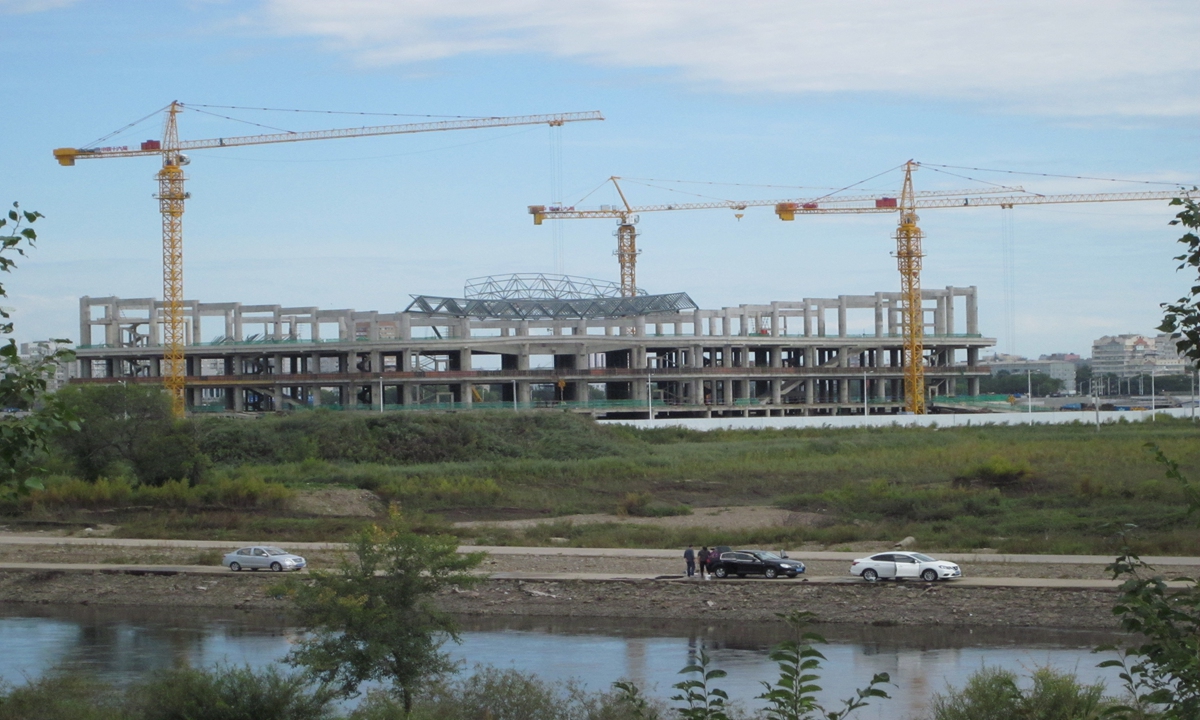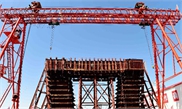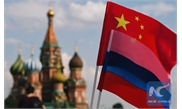
Construction of the cross-border aerial cableway linking Chinese and Russian cities progresses steadily in Heihe, Northeast China's Heilongjiang Province, on August 29, 2022. Photo: VCG
After the construction of a cross-border aerial cableway linking Chinese and Russian cities was reportedly delayed due to Western sanctions against Russia, a Chinese expert on Tuesday suggested that Chinese firms could step in to supply cable cars and stressed China-Russia projects will not be bogged down easily by Western sanctions.
Due to the EU sanctions, French company Poma isn't supplying cable cars to the project, which would slow down the construction by a year, Russian media reported, citing Amur region governor Vasily Orlov.
Investors are looking for alternative suppliers and the project will be implemented, Orlov said on the sidelines of the Eastern Economic Forum in Russia's port city of Vladivostok, according to media reports.
The cross-border cableway is designed to link the Russian city of Blagoveshchensk and Heihe in Northeast China's Heilongjiang Province - two cities that have rolled out visa-free policies.
The project is being jointly built by companies from China, Russia and France. The facilities in the Chinese side are mainly being built by a local contractor in Heihe. The construction is 50 percent complete, and the project had been expected to be put into operation by the end of 2023, local news outlet Heilongjiang Daily reported on August 31.
China and Russia have the ability to promote cooperative projects without third parties, including the cross-border cableway, Li Xin, director of the Institute for Eurasian Studies at the Shanghai University of Political Science and Law, told the Global Times on Tuesday.
Chinese suppliers could offer alternative choices if the French cable car supplier could not proceed, Li noted.
Construction on the 973-meter cableway started in July 2019. With a designed running speed of 7 meters per second, it is expected to transport 6 million travelers annually and to shorten the one-way trip to less than 10 minutes, according to media reports.
Russia has been tilting toward Asia for trade due to sanctions by Europe and other countries over the Russia-Ukraine conflict. Under such circumstances, speeding up construction of cross-border transportation infrastructure facilities and free trade zones is important for Russia, according to Li.
In June, the first China-Russia highway bridge, which also links the two cities, opened to traffic.
It is anticipated that China-Russia bilateral trade would hit a new high in 2022, Li said. In the first seven months of this year, bilateral trade totaled $97.71 billion, up 29 percent year-on-year.
Global Times


